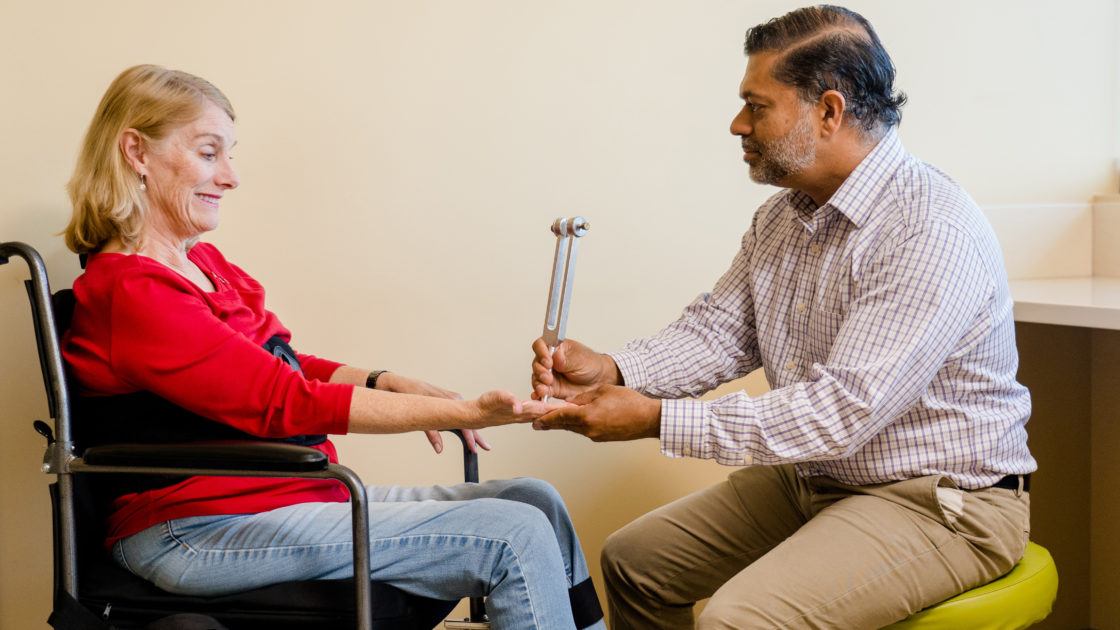
FDA Grants Approval of New Drug Therapy to Slow the Progression of ALS
Phoenix’s Barrow Neurological Institute Instrumental in Studies that Led to Today’s FDA Approval
A leading amyotrophic lateral sclerosis (ALS) neurologist at Barrow Neurological Institute played an important role in the FDA’s approval of a new drug to treat a genetic form of ALS and Barrow’s involvement in the studies that led to the FDA’s approval. The new drug, tofersen, is the first treatment that targets a familial cause of ALS and is one of few treatments available to help slow the progression of the disease.
‘This is a milestone for the ALS community,” says Shafeeq Ladha, MD, director of the Barrow Gregory W. Fulton ALS and Neuromuscular Disease Center. “ALS is one of the most devastating and debilitating diseases and it is my hope this new drug therapy will pave the way to developing more treatment options for patients living with the condition.”
ALS is one of the most devastating and debilitating diseases and it is my hope this new drug therapy will pave the way to developing more treatment options for patients living with the condition.
Shafeeq Ladha, MD
Director, Gregory W. Fulton ALS & Neuromuscular Disease Center
Barrow played a pivotal role in the research trials of the approved drug. The institute was a site for both the early phase 1 trial and the pivotal phase 3 study; and oversaw the training of 40 study sites to perform specific measurements of the study.
“Barrow houses one of the nation’s few comprehensive ALS centers, so we are well positioned to develop and test new treatments quickly in hopes of improving the quality of life for our patients,” says Dr. Ladha.
Researchers found that the drug led to less decline in motor function and quality of life in people who have the SOD1 genetic form of the disease. Importantly, the drug also lowered a marker of disease progression in the blood called neurofilament. To benefit from tofersen, individuals with ALS must carry an ALS causing mutation in the SOD1 gene, which accounts for 10 to 20 percent of all genetic causes of ALS. Dr. Ladha says that while the FDA has approved the drug, more research will be needed in the coming years to determine the full extent of the drug’s effectiveness and whether it can stop the disease in people with the mutation who do not yet have symptoms.
Amyotrophic lateral sclerosis (ALS) is a progressive and neurodegenerative disease in which the cells that control voluntary muscle movements die, leading to paralysis and, ultimately, death. Scientists don’t yet know what causes ALS and there is no cure.
In the News:
Neurology Today: Cautious Optimism for Newly Approved Drug for Rare Form of Genetic ALS
